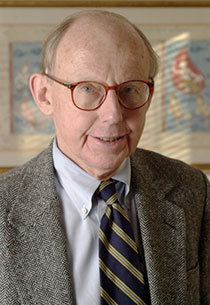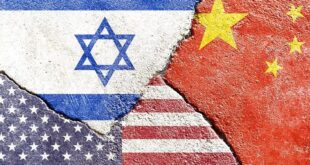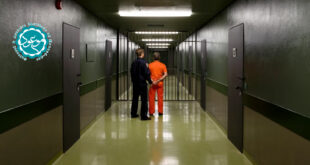Source : The Scientific Committee of the International Conference of Mahdism Doctrine
1. A new age is dawning.
A new age is dawning, conventionally referred to as the “post-post-bipolar age”, the age of non-distance, the age of revolutions and new ideologies, the age of globalisation, the age of a globalised and westernised modernity. The historical frame of reference may point to the Gulf crisis of 1990-1991, marked as the turning-point for the whole system of “security” and international relations: with the disruption of the Soviet Union, it undoubtedly put the final seal on the undisputed political-military and economic-financial superiority of the United States on the one hand, and on the intensification of the process of economic and market globalisation and the build-up of a new world order on the other.
A new world order born of a “Clash of civilizations” or a modernity process vs. tradition? In this last case, that is to say a balanced relationship between physiological, philosophical and psychological needs, avoiding gaps and conflict between generational cultures and civilizations, between traditional education and the dominant culture of today.
Certainly, the dominant culture of today is perceived as “western”, scientifically and technologically westernised. A balanced relationship means avoiding conflict in an otherwise deeply divided society which faces the dramatic confrontation of the inescapable process of modernisation/westernisation with a still deeply rooted tradition. A tradition that is at one and the same time religious, juridical, philosophical and cultural as a whole (that is to say, political-institutional, economic and social as well).
Samuel Huntington has predicted a “clash of civilizations”, and later on he has added: “if not a clash of civilizations, then what?”. Despite this catastrophic vision of absolute nullification, behind the screen of a westernised vision of Universe, Mankind, and History, and within the framework of an increasingly globalised world, rationality can prevail and mathematic deduction contributes to build a society based on a “rational” religion firmly rooted in a Messianic doctrine.
On the threshold of the third millennium, in an atmosphere of anachronisms and contradictions, dominated and conditioned by scientific discoveries, new ideas seem to take flight and regional barriers are collapsing to give way to a new form of globality. The Information and Communication Revolution is giving way to a new and more frightening revolution, the Bio-Technological Revolution, which is emerging on to the world stage as a new power. In this context, the dominant factors are uncertainty, violence, terror, micro-macro criminality, abuse of power and oppression, regional conflicts and new forms of waging war. Corruption prevails, together with illegal trafficking and crime. The indiscriminate exploitation of the environment adds natural disasters and new forms of human catastrophe. All these realities represent a worrying, new challenge and demand a positive reshaping of civil and political society.
A closer look reveals that one of the major threats for political and civil society derives without any doubt from new inequalities and a new “divarication”: the new rich and the new poor, the educated and the ignorant, the philosopher and the scientist, the ideologue and the pragmatic, the powerful and those who – although having riches – have no access to power, etc.
It is concerns such as these which, some years ago, side by side with IT and bio-technology, gave life to new intellectual stimuli destined to have a harsh impact on the third millennium and the new system which men are forging within a new world order: Man and Mankind, History and its Philosophy, Universe and its Laws.
In this respect, the doctrine of Mahdism vs. other contemporary political-social doctrines has a centrality of its own.
The dominant culture of today – technologically and scientifically “Western”, westernised and global – is essentially secular: geo-politics, geo-strategy, geo-economics are among the main issues of Western literature when confronting the new order. This trend is forcing scholars, academics, thinkers, government officials and opinion makers to define anew religious-cultural identities in the light of a new set of assumptions about the world and its creation, about universe and cosmos. At the core of it, History, Man and Mankind nourish a new and lively debate. In this specific context, Mahdism and its capability for theorizing as a doctrine can acquire a new centrality, the kernel of this debate, giving rise to issues which are at the heart also of Western societies and their philosophical tradition.
At the dawn of the third millennium, in an atmosphere of new conflicts and confrontations, negative conceptions and grim fantasies of the past persist, stereotyping through electronic media highly diabolic images of the Other, rather than pursuing truth and the promotion of goodwill. Vis-à-vis this objective environment, Samuel Huntington sternly predicted a “clash of civilizations”. And within this “clash”, the Islamic threat to the West continues to appear as an ever impending factor. Conversely, Islam perceives the West as a positive menace to its own life and system.
Hence, clash of civilizations can become a clash of different (and sometimes deeply differing) philosophies, giving life to different power-systems, competing for legitimacy and seeking media attention. Sometimes, they operate secretly and from “underground networks”, using similar tactics and “front organizations” to legitimate power and business – today we can speak in terms of “globalised business” within a globalised power-system.
Ideologies – either political and/or religious – legitimate pragmatic interests, an economic power-system which is not “anti-state” but a parallel organisational model with its own legal and ethical rules, its own hierarchy of authority, juridical structure and practice, military forces and balanced relationships: a levelling “functional global democracy” uprooting individual tradition and identity.
Against such a pessimistic backdrop, a different path can take shape. Deduction – mathematic and philosophical at the same time – may also bring to the reverse of a clash of civilizations. It becomes obvious that a reciprocal, cultural relationship must continue behind and beyond clashes and stern confrontations. It must involve society in its entirety, amalgamating it, creating new links between civil society and political society, creating new cultural links between peoples and their individual societies. Through an accurate balance between scientific and technological development on the one hand, and the preservation of ancient traditions and cultural identity on the other, it makes possible social and economic justice. Both form the basis of stable political-social doctrines, order, security and development.
Islam – with its own religious-juridical culture and reality – can no longer be disregarded. The teachings of “Mahdism” can represent a pivotal moment, a key-factor on the stage of history. The sentence “the world is a global village” is a well-known cliché. But this global village is pluralistic in a religious and cultural sense as well, and within this global village Islamic civilisation has forged its own order and dimension, the response to foreign challenges, to the integration of Islamic order and philosophical doctrines into the Western secular/economic system.
Without going into the details of another long, sometimes thorny topic, in the following discourse I purposefully leave aside both the political-strategic dimension and ensuing military-security issues on the one hand, and inter-religious issues on the other. There are more appropriate forums and authoritative scholars. Conversely, I wish to focus my attention on some realities and their beneficial experience: history and education. Both have a role to play.
Certainly, following a precise line of thought, clash of civilizations can become a clash of different and sometimes deeply differing power-systems, competing for legitimacy, seeking media attention. Sometimes, they do operate secretly and from “underground networks”, using similar tactics and “front organizations” to legitimate power and business. However, within this spectrum and behind the screen, there can be space for factors to emerge, and encourage negotiation, interaction, dialogue, discussion and convergence. The last, in particular, must not disregard tradition, our individual cultural tradition. It must not disregard the de facto and de jure equation that today is at the core also of the Islamic world’s inescapable modernisation process and its doctrines: that is to say Modernity vs. Tradition and Identity.
This means a sober evaluation of our philosophical doctrines and schools, an in-depth and inward-looking understanding of central teachings – such as “Mahdism”. This means reject any “westernised” model of modernity, reject wrong or manipulated ideas/ideologies, and prepare scientific answers to superstitions.
Obviously, these notes are the reflection of my academic life and personal experience. Both as a Catholic and as a human being, I have spent many years in the Islamic world, sharing with my many Muslim friends sorrow and grief, joyful days and merry events: mutually beneficial relationships, which have largely contributed to shaping some of my worldviews.
2. History.
A new global history and new methodological approaches. The long record of strained relations also between Muslims and the West must not detract from the fact that there is much in common, and much to be said and achieved. At the dawn of the third millennium, the thread of history takes us back to a new methodological approach. There is a clear worldwide perception that a new version of history is required, and we are moving towards a new “global history” and new methodological approaches, which must be at one and the same time multidisciplinary and interdisciplinary.
Through different methodological approaches they opened up a doctrinal debate on “tradition”, focusing on its various dimensions and individual realities. The environment, architecture and landscapes, archaeology, philology and linguistics, religion and literary studies (based on both written sources and memories), anthropology and ethno-anthropology, all converged in this new trend to meet and draw new cultural pictures. Moralising accounts, fine descriptions, erudite reports, evocative historical chronicles, social-anthropological analyses lavishly illustrated this vast world and its past, inhabitants and costumes. Finely chiselled personalities emerged from the dust of legend, and animated chronicles and historical accounts with the many challenges they had to face and confront with vis-à-vis an ever impending Europe, an increasingly strategically dominant United States and an increasingly westernised modernity.
These studies assumed considerable importance. One point they had in common: the debate centred round one special equation, that it to say “identity vs. modernity”. By the end of the last century this issue had given life to a new and no less controversial debate.
At that point, history dissociated itself from the dominant geopolitical, geo-strategic and economic culture. With a speculative lucidity, it abandoned any purely theoretical and virtual position, that often denies scientific value to “history” and historiography in particular, in favour of a more pragmatic approach. The most relevant studies began to move along a multidisciplinary and interdisciplinary approach, which views the study of regional history without neglecting the albeit many facets of its reality, and its traditional and complex structure. Rather, they viewed the diversity and multiplicity of historical facts and depicted them always bearing in mind the broader “global” framework and context. The “material culture” comes in, not so much and no longer as an alternative and atheistic approach to history and the universe (as it was only a few decades ago), but as a key to the understanding of facts and events, a no less precious clue to the re-reading of literature and all available sources through rational deduction from texts.
Here, the Mahdism teachings, theories and culture enter.
Undoubtedly, the intellectual world is facing a new historiographical debate, a debate into which the Islamic world has also entered and plays a central role. Knowledge and the vision of the world and its new order are translated into a new philosophy of culture and history. Rationality, historicity of scientific knowledge, nature and experience, nature and human ratio, science and ethics, science and its language, dialogue and the great monotheistic religions and/or Messianic doctrines, revolution and power, politics, force and its use…these are among the main themes most discussed and heard of also in the traditional culture of the ordinary people.
 Mouood Mouood English Edition
Mouood Mouood English Edition




